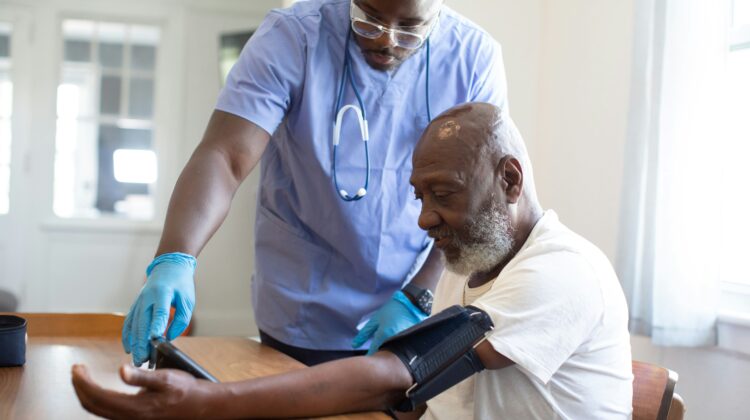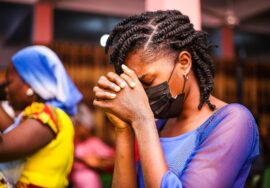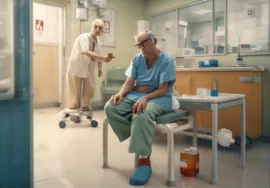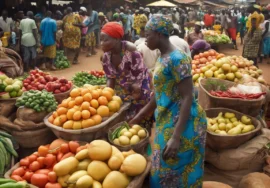
Understanding Dialysis: A Complete Guide for Patients and Families in Ghana
The Day Everything Changed
Ama’s hands trembled as she held her lab results at Korle-Bu Teaching Hospital. “Your kidneys are only working at 15%,” the doctor said gently. At 38, with three children depending on her, the word “dialysis” filled her with equal parts fear and confusion. Like many Ghanaians facing this diagnosis, Ama’s journey began with one overwhelming question: What exactly is dialysis, and how will it affect my life?
This comprehensive guide breaks down everything you need to know about dialysis in Ghana – from the medical facts to the human experience.
Section 1: Dialysis Explained – Your New Lifeline
What is Dialysis?
Dialysis is an artificial process that replicates your kidneys’ blood-cleaning function when they can no longer do their job. Think of it like an external filtration system – it removes waste, excess fluids, and maintains safe chemical levels in your blood.
The Two Main Types in Ghana:
-
Hemodialysis (HD)
-
How it works: Blood travels through a special filter (dialyzer) via a vascular access point (usually in your arm)
-
Duration: Typically 4 hours, 3 times weekly at dialysis centers
-
Available at: Major hospitals like Korle-Bu, Komfo Anokye, and regional hospitals
-
-
Peritoneal Dialysis (PD)
-
How it works: Uses the lining of your abdomen (peritoneum) as a natural filter with special cleansing fluid
-
Can be done: At home after proper training
-
Availability: Limited but growing in Ghana
-
Dr. Kwame Osei, nephrologist at 37 Military Hospital, explains: “We recommend HD for most Ghanaian patients because of our infrastructure challenges, but PD can offer more flexibility when available.”
Section 2: The Ghanaian Reality – Costs, Challenges & Solutions
The Financial Burden
-
Standard HD costs: GH¢300-500 per session (many patients need 12-16 sessions monthly)
-
NHIS coverage: Currently covers up to 6 sessions monthly (about 50% reduction)
-
Hidden costs: Transportation, medications, special diets
Survival Stories:
Kofi Mensah, 42, Accra: “I sold my taxi to pay for treatments before NHIS expanded coverage. Now I advocate for others through the Kidney Patients Association.”
Available Support:
-
Government Initiatives
-
Expanded NHIS dialysis coverage (2023)
-
New dialysis units in regional hospitals
-
-
NGO Assistance
-
Subsidized treatment programs
-
Patient support groups
-
Section 3: Living Well on Dialysis – Practical Tips
Diet Adjustments for Ghanaian Meals
-
Limit: High-potassium foods (ripe plantains, kontomire)
-
Enjoy: Grilled tilapia, banku (in moderation), apples
-
Hydration: Strict fluid limits mean creative solutions like chewing gum or ice chips
Managing Energy & Work
-
Typical schedule: Rest days after treatment
-
Success story: Adwoa runs her hairdressing salon by scheduling dialysis on Mondays and Fridays
Emotional Health
-
Common feelings: Anger, depression, hope
-
Support groups: Korle-Bu Patient Network meets every 2nd Saturday
Section 4: What Families Need to Know
How to Help Your Loved One
-
Learn the treatment schedule
-
Help track fluid intake
-
Provide emotional support without smothering
Financial Planning Tips
-
Explore NHIS registration
-
Connect with patient advocacy groups
-
Consider community fundraising (popular in Ghana)
Conclusion: There Is Life After Diagnosis
While dialysis brings challenges, hundreds of Ghanaians are living full, meaningful lives with treatment. As Ama (now a dialysis nurse herself) says: “This machine isn’t my enemy – it’s the reason I see my children grow.”






